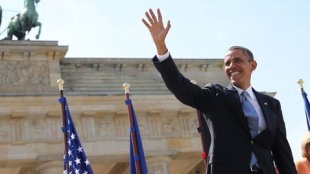KABUL, Afghanistan (AP) ? The Taliban proposed a deal in which they would free a U.S. soldier held captive since 2009 in exchange for five of their most senior operatives at Guantanamo Bay, while Afghan President Hamid Karzai eased his opposition Thursday to joining planned peace talks.
The idea of releasing these Taliban prisoners has been controversial. U.S. negotiators hope they would join the peace process but fear they might simply return to the battlefield, and Karzai once scuttled a similar deal partly because he felt the Americans were usurping his authority.
The proposal to trade U.S. Army Sgt. Bowe Bergdahl for the Taliban detainees was made by senior Taliban spokesman Shaheen Suhail in response to a question during a phone interview with The Associated Press from the militants' newly opened political office in Doha, the capital of the Gulf nation of Qatar.
The prisoner exchange is the first item on the Taliban's agenda before even starting peace talks with the U.S., said Suhail, a top Taliban figure who served as first secretary at the Afghan Embassy in the Pakistani capital of Islamabad before the Taliban government's ouster in 2001.
"First has to be the release of detainees," Suhail said Thursday when asked about Bergdahl. "Yes. It would be an exchange. Then step by step, we want to build bridges of confidence to go forward."
The Obama administration was noncommittal about the proposal, which it said it had expected the Taliban to make.
"We've been very clear on our feelings about Sgt. Bergdahl and the need for him to be released," State Department spokeswoman Jen Psaki said. "We have not made a decision to ... transfer any Taliban detainees from Guantanamo Bay, but we anticipate, as I've said, that the Taliban will all raise this issue."
Bergdahl, 27, of Hailey, Idaho, is the only known American soldier held captive from the Afghan war. He disappeared from his base in southeastern Afghanistan on June 30, 2009, and is believed held in Pakistan. Suhail said Bergdahl "is, as far as I know, in good condition."
Donna Thibedeau-Eddy, who has spent the last few days at the Idaho home of the soldier's parents, Bob and Jani Bergdahl, said the family was hopeful.
"I was with his Mom and Dad this morning when they got the news of the exchange offer. They were ecstatic," said Thibedeau-Eddy. "They actually saw the news before they got the call from the military. Bob saw it online and said 'Jani, Donna, look at this.'"
While there have been talks before, Bob Bergdahl is putting more faith and hope into the latest developments because it appears the Taliban are taking the initiative, Thibedeau-Eddy said.
Bergdahl's parents received a letter this month from their son through the International Committee of the Red Cross. They did not release details of the letter. The soldier's captivity has been marked by only sporadic releases of videos and information about his whereabouts.
The reconciliation process with the Taliban ? seen by most as the only way to end the nearly 12-year war ? has been a long and bumpy one.
The U.S. began secret talks with the militants more than two years ago in off-and-on discussions that lasted several months.
The two sides discussed prisoner exchanges and for a brief time it appeared that the five Guantanamo Bay prisoners would be released and sent to Qatar to help further the peace process.
But Karzai, furious that he had not been told of the talks in advance, demanded that the Taliban operatives be returned to Afghanistan rather than Qatar.
Since then, the U.S. has been trying to jumpstart peace talks and the Taliban have made several offers ? including sharing power in Kabul. The Taliban have also attended several international conferences and held meetings with representatives of about 30 countries.
Afghan and U.S. officials have said the Taliban being considered for any exchange deal are:
? Mohammad Fazl, a former Taliban chief of army staff and the deputy minister of defense.
? Abdul Haq Wasiq, former Taliban deputy minister of intelligence. He was in direct contact with supreme leader Mullah Mohammed Omar during the Taliban rule, according to military documents.
? Mullah Norullah Nuri , who has been described as one of the most significant former Taliban officials held at Guantanamo. He was a senior Taliban commander in Mazar-e-Sharif and previously was a Taliban governor in two provinces in northern Afghanistan.
? Khairullah Khairkhwa, a former Taliban minister of the interior and military commander. According to military documents, he had direct ties to Mullah Omar and Osama bin Laden and was also a friend of Karzai.
? Mohammed Nabi, former chief of security for the Taliban in Qalat, the capital of the southern province of Zabul.
If the Taliban hold talks with American delegates in the next few days, they will be the first U.S.-Taliban talks in nearly 1? years.
U.S. Secretary of State John Kerry was expected in Doha ahead of a conference there scheduled for Saturday on the Syrian civil war. He was not expected to meet with the Taliban although other U.S. officials might in coming days.
On Wednesday in Washington, State Department spokeswoman Jen Psaki said the U.S. had "never confirmed" any specific meeting schedule with Taliban representatives in Doha.
Prospective peace talks were again thrown into question Wednesday when Karzai became infuriated by the Taliban's move to cast their new office in Doha as a rival embassy.
The Taliban held a ribbon-cutting ceremony Tuesday in which they hoisted their flag and a banner that evoked the name they used while in power more than a decade ago: "Political Office of the Islamic Emirate of Afghanistan." Later, the Taliban replaced the sign to read simply: "Political office of the Taliban."
At the ceremony, the Taliban welcomed dialogue with Washington but said their fighters would not stop fighting. Hours later, the group claimed responsibility for a rocket attack on Bagram Air Base outside the Afghan capital, Kabul, which killed four American service members.
The U.S. expectation had been that U.S.-Taliban talks would be followed several days later with direct talks between the Taliban and a Karzai peace delegation.
But on Wednesday, Karzai announced that his government would not participate, apparently also angered by the way Kabul had been sidelined in the U.S.-Taliban bid for rapprochement.
The Afghan president also suspended negotiations with the United States on a bilateral security agreement that would cover American troops who will remain behind after the final withdrawal of NATO combat troops at the end of 2014.
That left U.S. officials scrambling to save the talks, and Kerry spoke with Karzai in phone conversations in an effort to bring him back on board.
On Thursday, Karzai spokesman Fayeq Wahidi said the Afghan president is willing to join peace talks with the Taliban if the U.S. follows through with promises he said were made by Kerry over the phone.
Wahidi said Kerry promised Karzai that the Taliban flag and a nameplate with their former regime's name would be removed and that the U.S. would issue a formal written statement supporting the Afghan government and making clear that the Taliban office would not be seen as an embassy or government-in-exile.
"If all those assurances and commitments the U.S. had given, if we are assured that they will be fully put in place on the issue of talks in Qatar," Wahidi said, "we would see no problem in entering into talks with the Taliban in Qatar. "
A decision on whether to restart the U.S. security agreement talks would be made after those assurances, he added, referring further questions to the foreign ministry.
On Thursday, the "Islamic Emirate" nameplate had been removed from the Taliban office. The flagpole inside the compound was apparently shortened and the Taliban flag ? dark Quranic script on a white background ? was still flying but not visible from the street. Journalists gathered at the office shot images of the flag through the gaps in the walls.
The Taliban have long refused to talk to Karzai's representatives but the opening of the office was seen as a first step toward those meetings.
Suhail said the Taliban are insistent that they want their first interlocutors to be the United States. "First we talk to the Americans about those issues concerning the Americans and us (because) for those issues implementation is only in the hands of the Americans," he said.
"We want foreign troops to be pulled out of Afghanistan," he added. "If there are troops in Afghanistan, then there will be a continuation of the war."
Suhail indicated the Taliban could approve of American trainers and advisers for the Afghan troops, saying that "of course, there is cooperation between countries in other things. We need that cooperation."
He said that once the Taliban concluded talks with the United States, they would participate in all-inclusive Afghan talks.
Suhail ruled out exclusive talks with Karzai's High Peace Council, which has been a condition of the Afghan president, who previously said he wanted talks in Doha to be restricted to his representatives and the Taliban. Instead, the Taliban would talk with all Afghan groups, Suhail said.
"After we finish the phase of talking to the Americans, then we would start the internal phase ... that would include all Afghans," he said. "Having all groups involved will guarantee peace and stability."
___
Gannon reported from Islamabad, Pakistan. Associated Press writers John Miller in Hailey, Idaho, Brian Murphy in Dubai and Deb Riechmann in Washington contributed to this report.
___
Kathy Gannon is AP Special Regional Correspondent for Afghanistan and Pakistan and can be reached at www.twitter.com/kathygannon
Source: http://news.yahoo.com/ap-exclusive-taliban-offer-free-us-soldier-073132683.html
joe avezzano kanye west theraflu joey votto the masters live mega millions winner holy thursday chris stewart











![Video-1024x1024[1]](http://www.kcmblog.com/wp-content/uploads/2013/06/Video-1024x10241.jpg) It seems with the release of new digital marketing tools, real estate professionals are finding more creative ways to interact and build relationships with their customers.?Here are?5 reasons?agents should be using videos.
It seems with the release of new digital marketing tools, real estate professionals are finding more creative ways to interact and build relationships with their customers.?Here are?5 reasons?agents should be using videos.